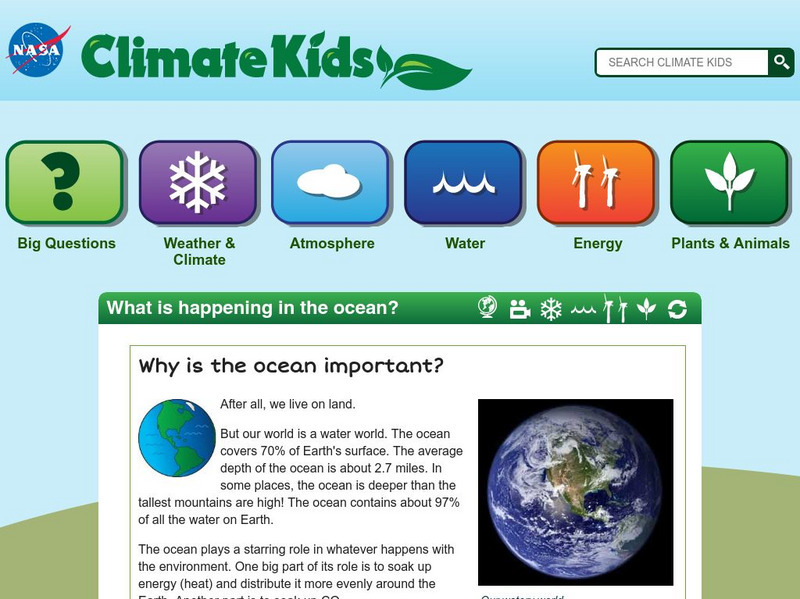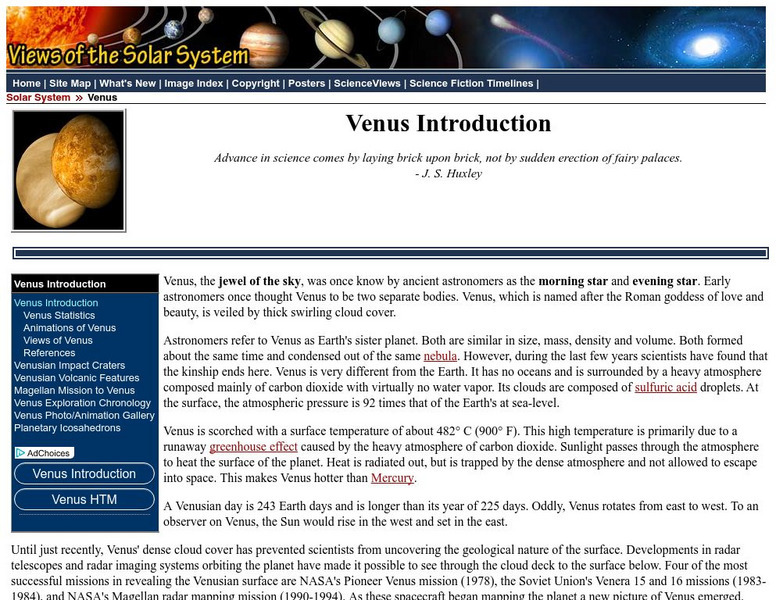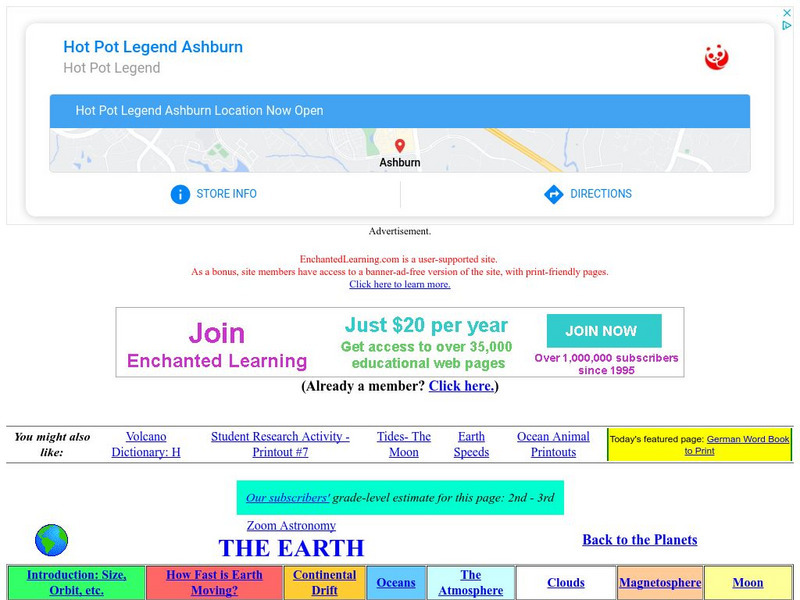Hi, what do you want to do?
Cool Math
Coolmath: Science Monster: Pluto
A cool fact sheet about Pluto including a place for students to enter their weight on Earth to convert it to what it would be on Pluto.
NASA
Nasa: Big Questions: Oceans
Learn more about the oceans that cover so much of our planet. Five big Q and A's are addressed including why oceans are so important, how oceans soak up energy and gases, the relationship between climate and oceans, and the function of...
Cosmos 4 kids
Cosmos4 Kids: Solar System: Pluto
Learn all about Pluto ..its discovery, basic facts, recognition as a planet, and most recently, its 'demotion' from a planet to a dwarf planet. The brief, to the point text makes this site most suitable for younger researchers.
Views of the Solar System
Views of the Solar System: Mercury
Discover interesting information about the planet Mercury through a vast archive of photographs and scientific facts.
Views of the Solar System
Views of the Solar System: Venus
Discover interesting information about the planet Venus through a vast archive of photographs and scientific facts.
ClassFlow
Class Flow: Pacific Coast Region
[Free Registration/Login Required] This flipchart is one in a series of flipcharts about the different regions of the US. Facts and links to websites included on the Pacific Region.
ClassFlow
Class Flow: The 13 Colonies
[Free Registration/Login Required] This flipchart provides an overview of the original 13 colonies, including information about the individual colonies, fun facts, an interactive quiz and maps.
Science4Fun
Science4 Fun: Jupiter
Learn fun facts and details about the weather, composition, and discovery of Jupiter, the largest of all the planets.
Science4Fun
Science4 Fun: Mercury
Learn fun facts and details about the atmosphere, geography, composition, and discovery of Mercury, the closest planet to the sun.
Science4Fun
Science4 Fun: Neptune
Learn fun facts and details about the atmosphere, composition, and discovery of Neptune, the last planet in our solar system.
Science4Fun
Science4 Fun: Saturn
Learn fun facts and details about the atmosphere, composition, and discovery of Saturn, the second largest planet.
Science4Fun
Science4 Fun: Uranus
Learn fun facts and details about the atmosphere, composition, and discovery of Uranus, the seventh closest planet to the sun.
Enchanted Learning
Enchanted Learning: Zoom School: Oceans
Find out why the oceans are blue and what causes waves by clicking here. There is a table of information about the four oceans as well as interesting facts on waves, salinity, and tides.
PBS
Pbs: Nature: Wolverine: Chasing the Phantom
Learn about the most elusive creatures on Earth, the wolverine, through pictures, fact sheet, and a full episode of Nature. This episode shows how the wolverine is the most efficient and resourceful carnivores on the planet.
Curated OER
New Zealand
A concise site provided for by the Lonely Planet that lists basic facts about New Zealand. Map included.
Cool Math
Coolmath: Science Monster: Our Sun
Find out about our closest star, the sun. Read interesting facts and other trivia about our planet's source of energy.
CK-12 Foundation
Ck 12: Earth Science: Earth's Shape
[Free Registration/Login may be required to access all resource tools.] Examines Earth's shape.
CK-12 Foundation
Ck 12: Earth Science: Earth's Shape
[Free Registration/Login may be required to access all resource tools.] Examines Earth's shape.
Ducksters
Ducksters: Physics for Kids: Gravity
Kids learn about the science behind gravity, the mysterious force of planet earth including why it is important, what is weight, and fun facts. What is gravity?
















